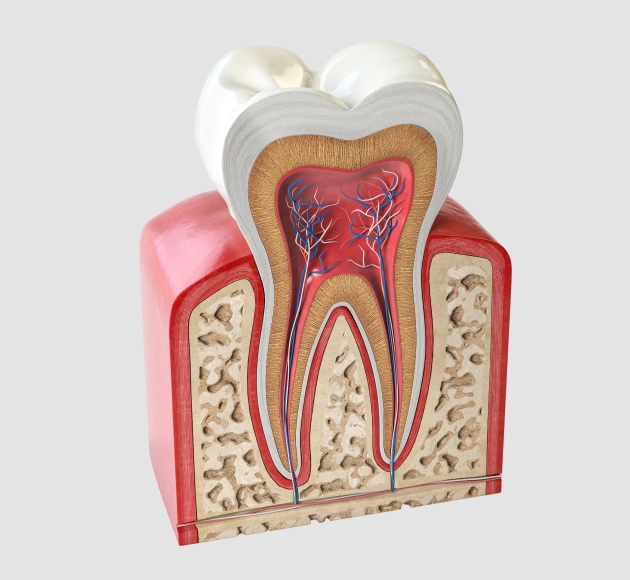Pay Online

Reasons for Root Canal Therapy
Dentists and endodontists typically recommend root canal therapy for the following reasons:
- Deep Decay: When tooth decay has reached the pulp (the living tissue inside the tooth).
- Infection: When an infection develops inside the root, creating an abscess that can be seen on a dental x-ray.
- Trauma: When a tooth experiences injury or trauma.
To save the tooth, we remove the inflamed or infected dental pulp. The space is then thoroughly disinfected using clinically-proven methods before being filled with biocompatible dental materials. Root canal therapy is highly successful and can last a lifetime, but it is crucial to follow up with your primary dentist for proper restoration, often requiring a filling or crown.
Importance of Root Canal Therapy for Tooth Health
Root canal therapy is a vital procedure that eliminates harmful bacteria from inside your tooth, effectively healing infections, relieving pain, and restoring your overall oral health. When deep decay or a crack reaches the nerve of a tooth, it can cause intense pain and lead to infection. In such cases, a root canal is necessary to remove the infected or damaged tissue, disinfect the area, and prevent the spread of infection. This treatment not only saves the tooth but also prevents further complications, helping to restore both function and comfort.
Root Canal Retreatment
In some cases, the root canal space may become re-contaminated by bacteria from the saliva, leading to treatment failure. The main causes of this re-infection include:
- Inadequate restoration of the tooth after the initial treatment
- A filling or crown that leaks over time
- Missed canals during the original procedure, often due to their narrowness or curvature
- A crack in the tooth or root, which may make retreatment unfeasible depending on its severity
- New decay that exposes the root canal filling to bacteria
In rare instances, a root canal may simply not heal as expected. In these cases, it is essential for an experienced clinician to evaluate the situation and determine if retreatment is the appropriate solution.
